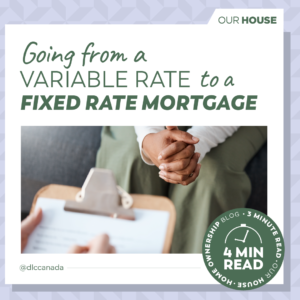 Why the CHIP Reverse Mortgage is an excellent solution for debt consolidation.
Why the CHIP Reverse Mortgage is an excellent solution for debt consolidation.
Keeping up with rising living costs can be particularly challenging when you’re on a fixed income with limited cash flow. Many Canadians are taking out loans, using multiple credit cards, and delaying significant purchases to stay financially stable in retirement. However, juggling debts from different sources with varying interest rates and payment schedules can be stressful, leading Canadians to turn to debt consolidation loans to manage their finances and reduce stress.
What is debt consolidation?
Debt consolidation involves paying off debts using a single, lower interest loan. This approach significantly reduces the interest you pay and it offers the convenience of handling just one monthly bill instead of several.
Is Debt Consolidation Right for Me?
Many Canadians consider debt consolidation for various reasons, including:
- Catching up on bill payments: Debt consolidation loans can help you pay off multiple overdue bills, such as mortgage payments, income tax, phone, internet, heating, and hydro bills, providing you with financial control and stability.
- Paying off Private Loans: Many retired Canadians rely on private high interest loans to make it through the month or handle unexpected expenses. However, these loans still require monthly payments and can lead to growing debt. Debt consolidation loans can pay off these high-interest loans, breaking the cycle of debt, and in turn, can free up more monthly income.
- Paying off Credit Card debt: High-interest credit card debt can be stressful. Debt consolidation loans can clear the outstanding balance on your credit cards and instead consolidate it into one much lower interest rate loan, making paying off what you owe easier.
The CHIP Reverse Mortgage: An Effective Debt Consolidation Solution
The CHIP Reverse Mortgage is a loan secured against the appraised value of your home. It is designed exclusively for Canadian homeowners aged 55 years and better and can be an effective debt consolidation solution for several reasons, such as:
- Increase Cashflow: Access up to 55% of your home’s equity in tax-free cash, while staying in the home you love.
- No Required Interest Payments: No monthly interest payments required until you move or sell.
- Easy Qualification: No income, credit score, or health status requirements. Available to Canadian homeowners aged 55 or older.
- Preservation of Retirement Funds: Does not affect eligibility for government benefits such as CPP, OAS or other income sources.
- Protection from Market Fluctuations: TheNo Negative Equity Guarantee* from HomeEquity Bank, ensures you are protected even if your home’s value decreases.
Consolidate your high-interest debts, stay in your home, and enjoy tax-free cash to finance a more fulfilling retirement. To learn more about how the CHIP Reverse Mortgage can serve as a powerful and flexible tool for consolidating debt, contact Jennifer Koop, your Dominion Lending Centres mortgage expert.
*As long as clients keep their property in good maintenance, pay their property taxes and property insurance and their property is not in default. The guarantee excludes administrative expenses and interest that has accumulated after the due date.
Published by DLC Marketing Team
For all your mortgage needs contact us today 705-349-0502
Jennifer Koop & Susan Bloom, Mortgage Agents Huntsville, Muskoka
Dominion Lending Centres, Mortgage Brokers Huntsville, Muskoka

 Going From a Variable Rate to a Fixed Rate Mortgage
Going From a Variable Rate to a Fixed Rate Mortgage Proven Strategies To Lower Your Interest Rate
Proven Strategies To Lower Your Interest Rate